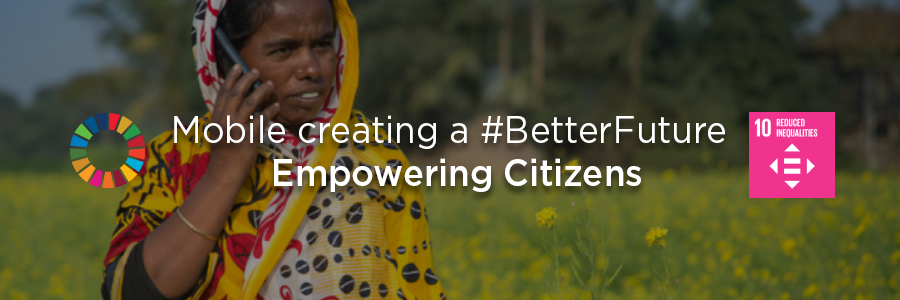
Closing the usage gap provides a big opportunity to get billions of citizens online and benefitting from the services and solutions access to the mobile internet provides. There are three key areas to be addressed to empower citizens, digital skills and literacy, content in local language and safety and security.
Lack of digital skills and literacy is both the top barrier to mobile internet use in low- and middle-income countries among those aware of it, as well as a key issue in developed countries. Lack of relevant content and services as well as lack of content in local language represents a major issue in many countries around the world. Safety and security considerations are key to ensure trust in mobile internet services.
Mobile operators play a key role in driving digital inclusion supported by regulators, policy makers and other stakeholders. Through collaboration between the mobile industry, adjacent industries, governments and the development community, innovative solutions are being developed to help reduce the digital divide. Citizens are being empowered with digital skills to access and use the mobile internet, understand relevant content, and do so in a safe and secure environment.

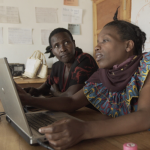
Digital skills Rwanda
In Rwanda, Tigo, in cooperation with the GSMA, launched the Mobile Internet Skills Training Toolkit (MISTT) in June 2017. Spread across 11 of Rwanda’s 30 districts, the project aimed to improve digital literacy amongst Tigo’s customer base.
The scheme has experienced rapid and radical success. Over the three months’ pilot 300 Points of Activation (POA) trained 80,000 customers and 77 per cent of them increased their data usage following training.
Resources
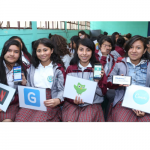
Empowering girls
In Guatemala, Tigo and an organisation dedicated to empowering women through technology called Sheva believe an essential way to support and protect girls and women is by training them to use mobile tools to increase their opportunities and improve their lives. ‘Mujeres Conectadas’, which means ‘Connected Women’, was launched in 2018. Mujeres Conectadas has trained more than 20,800 Guatemalan girls and women.
The Conectadas Project is an innovative approach to deliver the Mobile Internet Skills Training Toolkit (MISTT), and empower women in Guatemala.
Resources
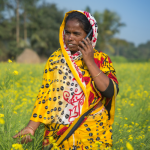
Digital skills Bangladesh
In Bangladesh, 87 per cent of the population use mobile. Yet, only 25 per cent of them use mobile internet. A key reason for this is a lack of basic digital skills. With support from the GSMA, Banglalink deployed the Mobile Internet Skills Training Toolkit (MISTT) to tackle this barrier to mobile internet adoption.
By using a force of 3,200 sales agents, Banglalink trained over 117,000 customers over three months. After these three months, amongst customers who were trained, there was a 228 per cent increase in mobile internet usage.
Resources
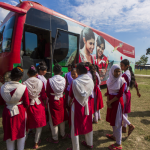
Digital Bus
Due to social norms in Bangladesh, many women do not enjoy the same freedoms and benefits as men, limiting opportunities for education and employment.
The ICT Division of the Bangladeshi Government, working with mobile network operator Robi Axiata and Huawei, had a vision to empower rural girls and women with the digital skills they would need to build a successful future career. The Digital Training Bus program is providing mobile digital training to over 63,000 women and girls in rural areas.
Resources

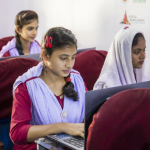
Mobile Internet for Women
Mobile services and applications are sometimes criticised for focusing on men’s priorities and paying too little attention to women’s needs. The perceived lack of relevance and useful content is an important barrier to mobile ownership and mobile internet use for women in low-and middle-income countries.
Dialog’s interactive app Yeheli, was launched in March 2018. Yeheli, meaning female friend, is Sri Lanka’s first-ever personalised and interactive web-based service dedicated to women’s health and wellbeing. This app allows users to ask questions anonymously in three different languages, Sinhala, Tamil and English, and to receive bespoke answers from experts.
Resources
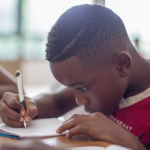
Personalised education
In Indonesia, Ruangguru received a grant from the GSMA Ecosystem Accelerator Innovation Fund in April 2017 to launch an online marketplace for personalised education where teachers and tutors generate content, and students access content for free or request personalised advice for a fee.
Resources
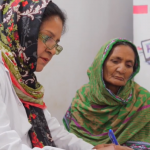
Health information
In Pakistan, Sehat Kahani connects female homebased doctors to communities where people lack access to quality health care using video consultation through intermediaries such as nurses, community health workers and midwives. Sehat Kahani received a grant from the GSMA Ecosystem Accelerator Innovation Fund in February 2018 to deploy the health technology in six clinics that support 120 community health workers. Sehat Kahani also developed a mobile and web-based telemedicine solution that gives users direct access to virtual consultations, as well as general preventative mental health information.
Resources
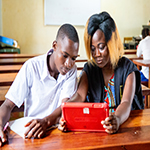
Access to affordable online education
Pass Orange Edu
In the Democratic Republic of Congo (DRC), the “Pass Orange Edu” gives students access to quality online content from the best international universities and training centres. Local partners also offer specialised training in business efficiency and entrepreneurship. The Pass includes 100 MB of mobile internet, valid for 24 hours. The costs are very affordable, 10 units at $0.10, which is ten times cheaper than a generalist pass.
The Orange Edu Pass has also been extended to primary and secondary school classes, giving access to courses corresponding to national educational programs and validated by teaching professionals in Burkina Faso, Senegal, Guinea and Mali, DRC.
Covid-19: Ensuring the continuity of the courses thanks to the Pass Orange Edu
To enable children and students to continue their studies as long as possible, the Orange Edu Pass has been made free during the coronavirus epidemic in 2020, in almost all countries where Orange is an operator.
Resources

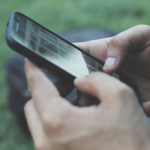
Nuestro Lugar Argentina
In Argentina, the mobile phone is the most common way of surfing the Internet among young people. Mobile operator Telecom Argentina decided to create a space online where kids could be taught how to use the Internet responsibly.
Nuestro Lugar, which means ‘Our place’, is an online hub specially designed to appeal to kids whilst still educating them on serious issues. Through interactive games, animated videos, comic strips and stand up comedy children are taught a whole range of skills to protect their online experience such as how to surf the web safely, change their social network privacy settings, the meaning of grooming and cyberbullying and how to behave in certain situations. There have been over 200 workshops in more than 30 Argentine cities, training over 13,000 students and 2,000 teachers.
Resources
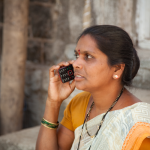
Female safety India
In 2018, Vodafone Idea launched ‘Sakhi’ across India, an exclusive safety service for women, focused on giving them the confidence to live life fearlessly.
Vodafone Sakhi’s features include emergency alerts which send your location to your emergency contacts, emergency balance and private number recharge. Millions of women use this service.
Resources
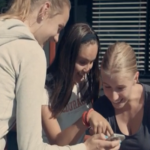
Fighting online hate
Mobile operator AT&T in the United States wanted to help young people deal with cyberbullying. Its #LaterHaters initiative encourages teenagers to use positivity in their digital spaces and stand up to online hate.The campaign includes a microsite and extensive social media content with online influencers helping to engage young people. Apps and other tools about privacy and safety are recommended, including lessons about cyberbullying, hate speech and fake news that were developed in collaboration with Common Sense Media.
US: #LaterHaters has been well received by teens. Millions have viewed the content, including more than 12.6 million Snapchat impressions, and 8,000+ people have signed an online pledge to stop online hate.
Resources
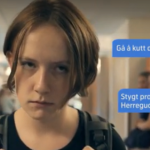
Cyberbullying
Norway has a vision of zero bullying, both offline and online. To support this and to help close the digital gap between generations, Telenor partners with the Norwegian Media Authority, the Kids and Media NGO and the Red Cross child helpline to run an outreach programme called Bruk Hue.
Bruk Hue addresses cyberbullying and online safety – its core messages for young people include be smart, be kind, show respect and have fun. It also teaches parents about the platforms and apps their children use and how to encourage positive and safe behaviour online. Since 2009, Bruk Hue has visited 1,200 schools, reaching 290,000 students and 60,000 parents.
Resources
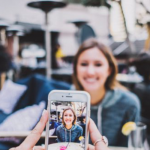
Reporting online abuse
It is vital that young people have access to services that help protect them from cyberbullying, sexual exploitation and other forms of abuse that take place online. Telekom Romania (part of Deutsche Telekom) supports an application called HappyGraff so that children and teenagers can report online concerns and access support services.
HappyGraff includes a free helpline and online chat service, run in collaboration with Asociaţia Telefonul Copilului (the Romanian children’s telephone association). Young people can report abuse, including cyberbullying and online grooming, as well as potentially illegal content.
Resources
Do you have an initiative you would like to showcase? Get in touch & suggest your initiative here.